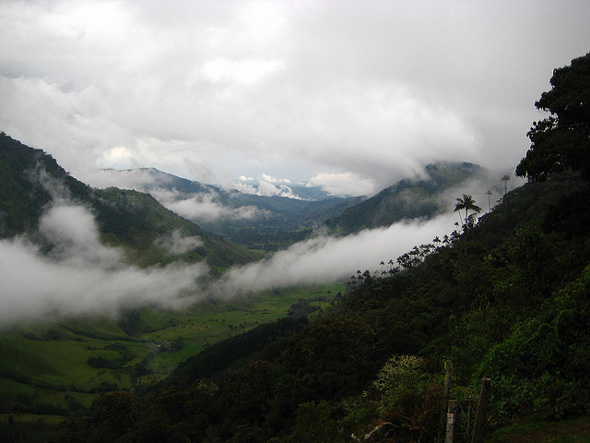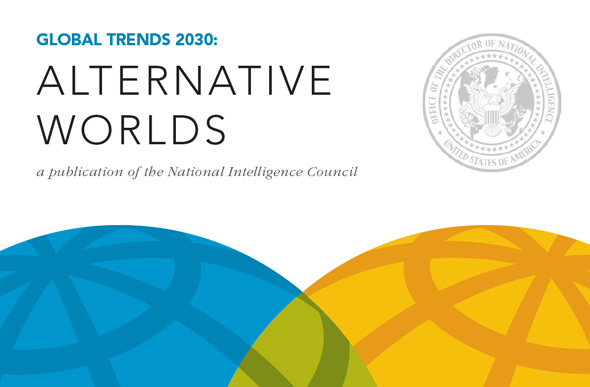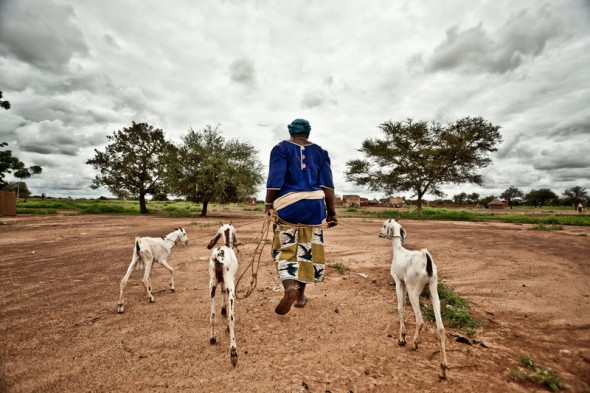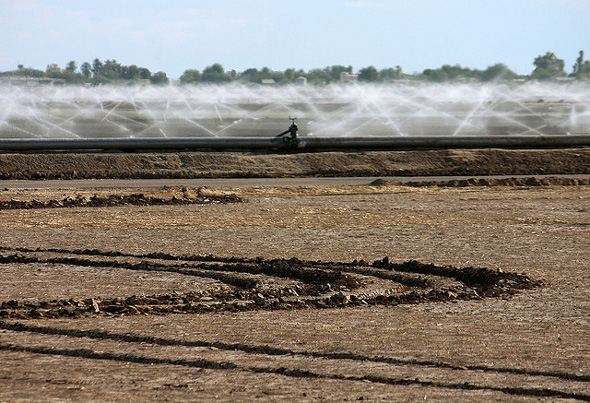-
Managing the Planet: The World at Seven Billion
›
Population growth “is highly concentrated in what are today the poorest and least well-governed areas of the world,” said George Mason University professor Jack Goldstone at the Wilson Center on December 5.
Goldstone was joined by Suzanne Ehlers, president and CEO of Population Action International (PAI), and Matthew Erdman, population-health-environment technical advisor at USAID, to discuss the implications of seven billion people and counting for the environment as part of the joint Wilson Center-George Mason University Managing the Planet series. [Video Below]
-
Autumn Spanne, The Daily Climate
Colombia’s Unexplored Cloud Forests Besieged by Climate Change, Development
›December 13, 2012 // By Wilson Center Staff
The original version of this article, by Autumn Spanne, appeared on The Daily Climate.
Five hours by truck and mule from the nearest town, a rumbling generator cuts through the silent night to power large spotlights as botanists crouch and kneel on large blue tarps spread across a cow pasture. It’s nearly midnight, and the team works urgently to describe every detail of the dozens of colorful orchids, ferns, and other exotic plants they have collected that day in Las Orquídeas National Park, one of the single most biologically diverse places on the planet.
-
Climate Change’s Impact on Human Development
› One of the greatest challenges in addressing climate change is the uncertainty of outcomes. The world is warming and greenhouse gases are accumulating at an unprecedented rate – what does that mean for the future of human development? In Barry B. Hughes, Mohammod T. Irfan, Jonathan D. Moyer, Dale S. Rothman, and José R. Solórzano’s paper, “Exploring Future Impacts of Environmental Constraints on Human Development,” they describe three possible futures for the world (a base line scenario, an environmental challenge scenario, and an environmental disaster scenario) and their potential impact on the indicators of the Human Development Index (HDI). The environmental disaster projection features a flat-lining HDI starting around 2015, with global life expectancy at birth seven years shorter than the baseline in 2060. The report also notes that the future of the planet will be drastically different if the world population peaks “well before 2100,” as is the case in the base line scenario, or continues to grow, as it does in the other scenarios.
One of the greatest challenges in addressing climate change is the uncertainty of outcomes. The world is warming and greenhouse gases are accumulating at an unprecedented rate – what does that mean for the future of human development? In Barry B. Hughes, Mohammod T. Irfan, Jonathan D. Moyer, Dale S. Rothman, and José R. Solórzano’s paper, “Exploring Future Impacts of Environmental Constraints on Human Development,” they describe three possible futures for the world (a base line scenario, an environmental challenge scenario, and an environmental disaster scenario) and their potential impact on the indicators of the Human Development Index (HDI). The environmental disaster projection features a flat-lining HDI starting around 2015, with global life expectancy at birth seven years shorter than the baseline in 2060. The report also notes that the future of the planet will be drastically different if the world population peaks “well before 2100,” as is the case in the base line scenario, or continues to grow, as it does in the other scenarios. -
National Intelligence Council Releases ‘Global Trends 2030’: Prominent Roles Predicted for Demographic and Environmental Trends
›
“We are at a critical juncture in human history, which could lead to widely contrasting futures,” writes the chairman of the National Intelligence Council (NIC) Christopher Kojm in the council’s latest forward-looking quadrennial report, Global Trends 2030: Alternative Worlds, released yesterday.
This year, principal author Mathew Burrows and his colleagues focus on a series of plausible global scenarios for the next 20 years and the trends or disruptions that may influence which play out. Among the most important factors in these projections are demography and the environment.
-
World Bank Issues Dire Warning About “Four Degree World”
›December 10, 2012 // By Carolyn Lamere
Without decisive action, global temperatures could rise by at least four degrees Celsius (seven degrees Fahrenheit) by the end of the century. A new World Bank report says that such a world would be “so different from the current one” that it would be difficult to even anticipate the challenges we would face.
-
‘The Christian Science Monitor’ Explores the Global Water Crisis: Should We Charge More for Water?
›
“There is as much of that water on the planet today as when the first amphibian flopped ashore; as much as when the ancient Greeks divined the future in the babble of brooks,” writes William Wheeler in The Christian Science Monitor. “So why do experts in science, economics, and development warn that a ‘global water crisis’ threatens the stability of nations and the health of billions?”
-
Top 10 Posts for November 2012
›Population and environment stories nearly swept the top 10 last month (ranked by unique pageviews). Sean Peoples’ first short film on population, health, and environment projects in Tanzania led the charge, followed by a guest post from Tim Tear and Craig Leisher of The Nature Conservancy; Ken Weiss’ Beyond Seven Billion event; Elizabeth Leahy Madsen’s look at Yemen’s demography; Kathleen Mogelgaard’s post on next steps for incorporating population dynamics in climate change; and a summary of Joel Cohen’s 45-minute YouTube introduction to demography for the Floating University.
-
Water Scarcity, Agriculture, and Energy Are Focus of ‘Choke Point: China Part II’
›With the start of part two of Circle of Blue and the China Environment Forum’s Choke Point: China series, the focus has broadened from looking more narrowly at water scarcity and energy to including the effects of food security and pollution in China too.
“From an environmental point of view,” said Circle of Blue Senior Editor Keith Schneider, the question is, “can a nation that big, operating at such a scale maintain its sustainability?”
 A Publication of the Stimson Center.
A Publication of the Stimson Center.








